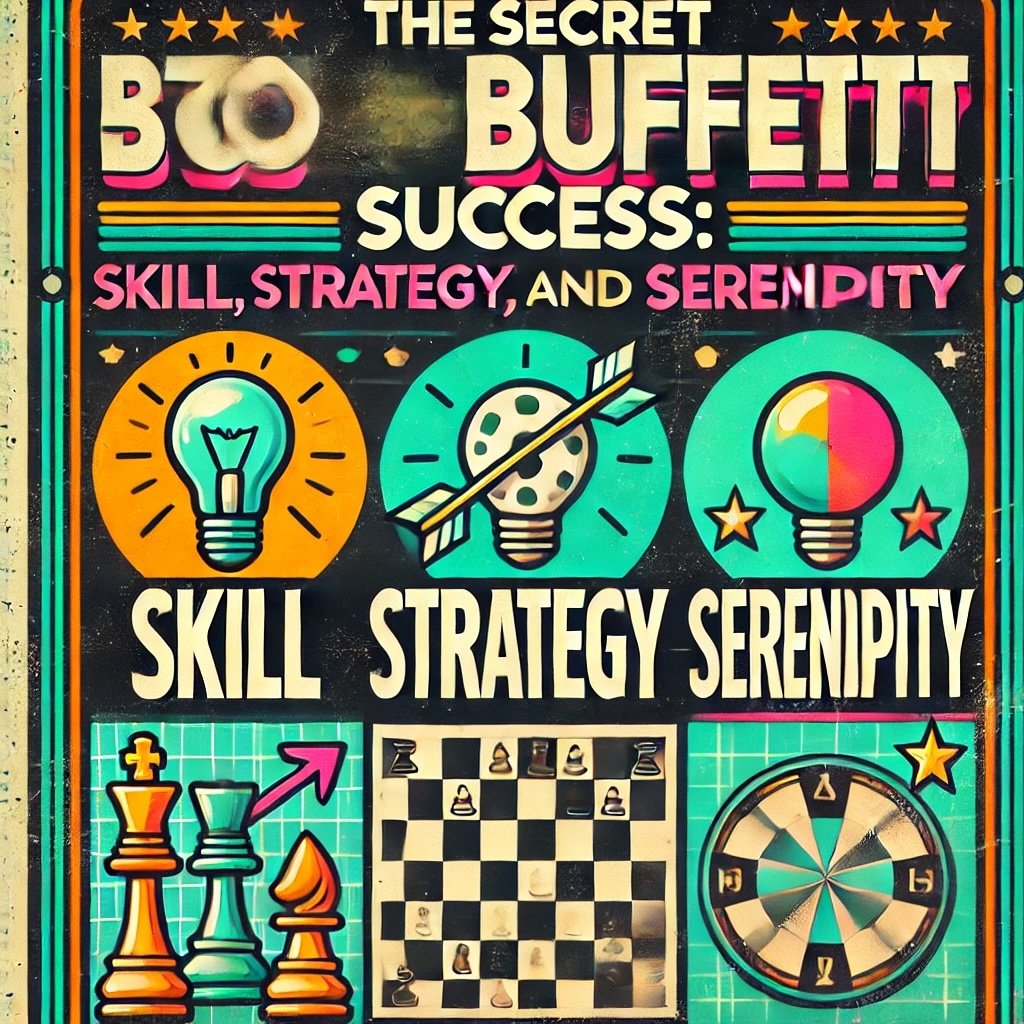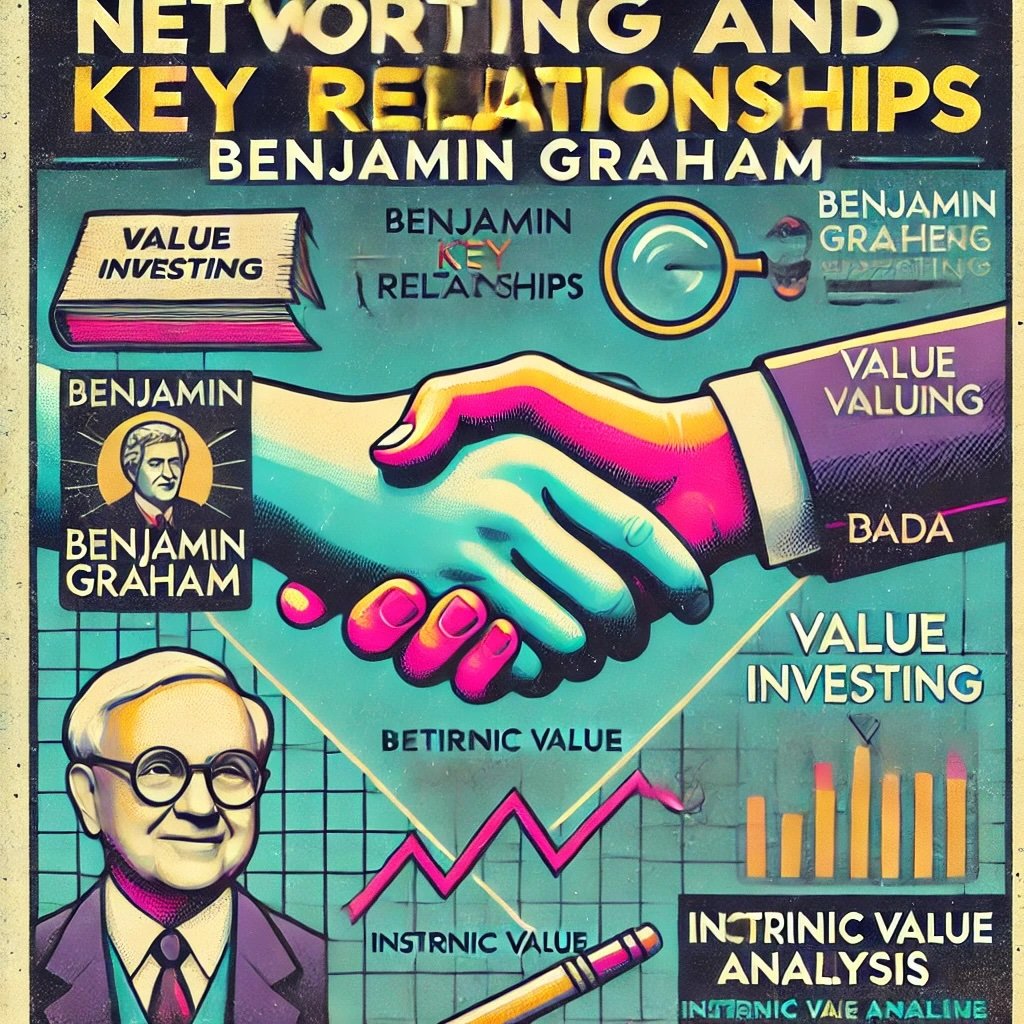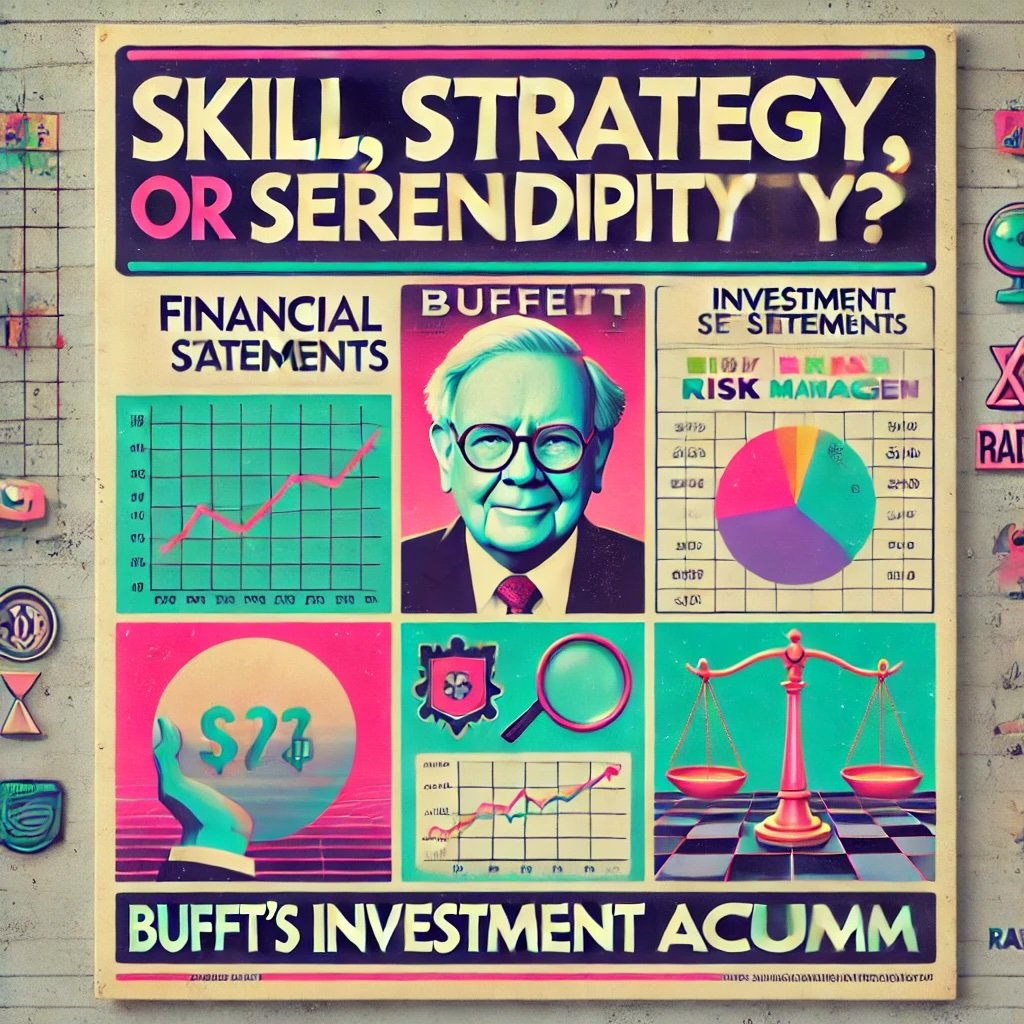When it comes to legendary investors, Warren Buffett is a name that resonates globally. Born in 1930 in Omaha, Nebraska, he has become one of the most successful and respected figures in the world of finance. With a net worth often fluctuating around $100 billion, Buffett isn’t just wealthy—he’s a symbol of investing prowess. Known affectionately as the “Oracle of Omaha,” he has a knack for making investment decisions that consistently outperform the market.

Buffett’s journey began at a young age. By 11, he made his first stock purchase, and by 13, he was running his own businesses. His early passion for numbers and keen eye for value laid the foundation for a career that would span decades and influence countless investors. Through his company, Berkshire Hathaway, Buffett has acquired and managed a diverse portfolio of businesses, ranging from insurance and utilities to candy and furniture.
What sets Buffett apart isn’t just his wealth but his investment philosophy. He emphasizes value investing—seeking out undervalued companies with strong fundamentals and holding onto them for the long term. His approach is characterized by patience, discipline, and a deep understanding of the businesses he invests in. This strategy has not only made him immensely wealthy but also a mentor to many aspiring investors.
- Net Worth: Approximately $100 billion.
- Investment Style: Value investing with a long-term focus.
- Reputation: Known as the “Oracle of Omaha” for his investment acumen.
Tip: Studying Buffett’s investment principles can provide valuable insights into building wealth over time.

Overview of Warren Buffett’s Success
So, what’s the secret sauce behind Buffett’s incredible success? Is it sheer brilliance, a flawless strategy, or perhaps a sprinkle of good fortune? We’ll explore the role that luck has played in Warren Buffett’s illustrious career. While it’s undeniable that Buffett possesses exceptional skill and a sharp mind for investing, it’s worth examining how chance events and fortunate circumstances may have contributed to his achievements.
We’ll delve into the balance between skill, strategy, and serendipity in investing. Understanding this interplay can offer a more nuanced perspective on what it takes to succeed in the financial world. After all, recognizing the impact of luck doesn’t diminish Buffett’s accomplishments; instead, it provides a holistic view of the factors that shape an investor’s journey.
- Exploring Luck: Assessing how chance events influenced Buffett’s career trajectory.
- Skill vs. Serendipity: Analyzing the interplay between expertise and fortunate circumstances.
- Lessons for Investors: Offering insights on how acknowledging luck can inform investment strategies.
Tip: Embracing both skill and luck in your own investing journey can lead to more informed and balanced decisions.
By the end of this exploration, you’ll have a clearer understanding of how luck intertwined with Buffett’s hard work and strategic thinking to create a legacy that’s both remarkable and instructive. Whether you’re an aspiring investor or simply curious about the dynamics of success, this deep dive into Buffett’s career offers valuable lessons on the unpredictable nature of the financial markets.
![]()
Early Life and Circumstances
Family Background and Upbringing
Warren Buffett was born on August 30, 1930, in Omaha, Nebraska. As the second of three children and the only son of Howard and Leila Buffett, he grew up in a middle-class family that valued hard work and education. His father, Howard, was a stockbroker and later a U.S. Congressman, which meant that discussions about finance and politics were commonplace at the dinner table. This environment provided young Warren with an early and intimate exposure to the world of investing.
From a very young age, Buffett showed an unusual aptitude for numbers and business. He was known to have a keen interest in mathematics and could effortlessly perform complex calculations in his head. At just six years old, he purchased six-packs of Coca-Cola from his grandfather’s grocery store for 25 cents and sold each bottle for a nickel, making a five-cent profit per pack. By age eleven, he made his first stock purchase, buying three shares of Cities Service Preferred at $38 per share.
His father’s profession gave him access to financial education that most children his age didn’t have. He spent hours in his father’s office, absorbing information about the stock market and reading books on investing. This early exposure not only piqued his interest but also laid the foundation for his future career. He wasn’t just learning about numbers; he was understanding the mechanics of wealth creation.
- Early Entrepreneur: Sold chewing gum, Coca-Cola bottles, and weekly magazines door-to-door.
- First Investment: Bought stocks at age 11, teaching him valuable lessons about market volatility.
- Financial Savvy: Filed his first tax return at age 13, claiming a $35 deduction for his bicycle.
Tip: Leverage your environment and early experiences to cultivate skills that align with your passions.

Educational Opportunities
At 17, Buffett enrolled at the Wharton School of the University of Pennsylvania. He wasn’t particularly impressed with the curriculum, feeling it didn’t offer the practical knowledge he sought. After two years, he transferred to the University of Nebraska, where he managed to graduate with a Bachelor’s degree in Business Administration by the age of 19. His quick progression through college demonstrated his eagerness to dive into the business world.
Buffett’s ambition led him to apply to Harvard Business School, but he was rejected—a setback that turned out to be a blessing in disguise. Undeterred, he applied to Columbia Business School after learning that his idol, Benjamin Graham, taught there. Accepted into the program, Buffett earned a Master’s degree in Economics. Studying under Graham, known as the father of value investing, was a transformative experience. Graham’s philosophy deeply influenced Buffett’s investment approach, emphasizing the importance of intrinsic value and margin of safety.
At Columbia, Buffett not only excelled academically but also built a relationship with Graham that extended beyond the classroom. He was the only student ever to earn an A+ in one of Graham’s classes. After graduation, he was determined to work on Wall Street but faced resistance from his father and even Graham, who initially didn’t offer him a job. However, persistence paid off when he eventually got the opportunity to work at Graham’s firm, Graham-Newman Corp.
- Rejected by Harvard: Turned down by his dream school, leading him to Columbia.
- Mentorship under Graham: Studied directly with the pioneer of value investing.
- Academic Excellence: Achieved top grades, showcasing his dedication and aptitude.
Tip: Embrace setbacks as opportunities to redirect your path toward potentially better outcomes.
Timing and Historical Context
Buffett’s life unfolded during a period of significant economic fluctuations. Born during the Great Depression, he witnessed firsthand the impact of economic hardship on everyday people. This context instilled in him a cautious approach to money and a deep understanding of financial risk. Growing up, he was also influenced by the economic optimism that followed World War II, a time when the U.S. economy experienced substantial growth.
The post-war economic boom of the 1950s and 1960s presented unique opportunities in the investment landscape. The stock market was less crowded and less efficient compared to today, allowing savvy investors like Buffett to find undervalued companies more readily. The lack of advanced technology and fewer professional investors meant that diligent research could uncover hidden gems in the market.
Buffett entered the investing world at a time when value investing was gaining traction, thanks in part to Benjamin Graham’s work. The economic conditions of the mid-20th century, characterized by industrial expansion and consumer growth, provided fertile ground for his investment strategies. His timing wasn’t just about luck; it was about recognizing the opportunities that the historical context offered and seizing them with informed confidence.
- Witnessed Economic Hardship: The Great Depression influenced his conservative investment approach.
- Capitalized on Post-War Growth: Took advantage of a booming economy to build his investment portfolio.
- Early Market Entry: Started investing at a time when fewer people were in the market.
Tip: Understanding the economic and historical context can enhance your ability to make strategic decisions.

Networking and Key Relationships
Meeting Benjamin Graham
How Buffett’s admission to Columbia led to mentorship under Graham
Warren Buffett’s decision to attend Columbia Business School was a pivotal moment in his life. After being rejected by Harvard Business School, he discovered that his idol, Benjamin Graham, taught at Columbia. Determined to learn from the father of value investing, Buffett eagerly enrolled. At Columbia, he immersed himself in Graham’s classes, absorbing the principles of investing that would shape his future career. This direct mentorship provided Buffett with a solid foundation in value investing, emphasizing the importance of intrinsic value and margin of safety.
- Strategic Choice: Buffett chose Columbia specifically to study under Graham.
- Mentorship Access: Gained personal insights from the leading authority on value investing.
- Educational Influence: Graham’s teachings became the cornerstone of Buffett’s investment philosophy.
Tip: Seek opportunities to learn directly from experts in your field; mentorship can significantly accelerate your growth.
The impact of this relationship on his investment philosophy
The mentorship with Benjamin Graham had a profound impact on Buffett’s approach to investing. Graham’s emphasis on buying undervalued stocks with strong fundamentals resonated deeply with him. Buffett adopted the concept of calculating a company’s intrinsic value and investing only when the market price was significantly lower. This disciplined approach to investing became a hallmark of Buffett’s strategy, allowing him to minimize risk and maximize returns. Furthermore, Graham’s principles instilled in Buffett a long-term perspective, teaching him to be patient and wait for the right opportunities.
- Intrinsic Value Focus: Prioritized assessing the true worth of companies.
- Margin of Safety: Invested with a cushion to protect against market volatility.
- Long-Term Perspective: Learned the value of patience in investment decisions.
Tip: Incorporate fundamental analysis into your investment strategy to make more informed and secure decisions.
![]()
Partnership with Charlie Munger
The chance meeting and subsequent partnership
Warren Buffett’s partnership with Charlie Munger began with a chance meeting in 1959, introduced by mutual friends in Omaha. Despite a 6-year age difference, they discovered a shared philosophy on life and investing. Their conversations revealed a mutual respect and complementary skill sets. Munger, a lawyer turned investor, brought a different perspective to the table, challenging Buffett’s existing ideas. This serendipitous encounter blossomed into a lifelong partnership, with Munger eventually becoming the Vice Chairman of Berkshire Hathaway. Together, they would steer the company to unprecedented success.
- Complementary Skills: Munger’s analytical mind complemented Buffett’s investment acumen.
- Shared Values: Both valued integrity, rationality, and long-term thinking.
- Dynamic Duo: Their partnership became one of the most successful in business history.
Tip: Be open to forming partnerships with those who challenge and expand your thinking; diversity in thought can lead to greater success.
How Munger influenced Buffett’s shift towards quality businesses
Charlie Munger played a crucial role in shifting Buffett’s focus from solely undervalued companies to investing in high-quality businesses at fair prices. Munger argued that it’s better to buy a great company at a fair price than a fair company at a great price. This insight led Buffett to invest in companies with strong brands and durable competitive advantages, such as Coca-Cola and Apple. Munger’s influence encouraged Buffett to look beyond numbers and consider qualitative factors like management quality and corporate culture. This evolution in strategy contributed significantly to Berkshire Hathaway’s growth.
- Quality Over Quantity: Emphasized investing in exceptional businesses.
- Long-Term Growth: Focused on companies with sustainable competitive advantages.
- Holistic Analysis: Considered both quantitative and qualitative aspects of businesses.
Tip: Balance your investment strategy by considering both the quality of the business and the price you pay.
Connections in the Business World
Serendipitous encounters that led to significant investments
Throughout his career, Buffett’s network led to serendipitous encounters that opened doors to lucrative investments. For example, his friendship with Katherine Graham, publisher of The Washington Post, allowed him to invest in the company during a critical time. Similarly, a chance meeting with Rose Blumkin led to the acquisition of Nebraska Furniture Mart. These connections weren’t just luck—they were the result of Buffett’s genuine interest in people and his reputation for integrity. By building strong relationships, he gained access to opportunities that others might have missed.
- Strategic Relationships: Friendships that evolved into investment opportunities.
- Reputation Matters: Trustworthiness attracted partners and deals.
- Active Networking: Engaged with a wide range of individuals across industries.
Tip: Cultivate authentic relationships in your industry; networking can lead to unexpected and valuable opportunities.
The role of networking in uncovering opportunities
Networking played a pivotal role in Buffett’s ability to uncover unique investment prospects. His approach wasn’t about superficial interactions but building meaningful connections based on mutual respect and interest. By engaging with business leaders, entrepreneurs, and influencers, Buffett stayed informed about various industries and trends. These relationships often provided insider perspectives and early access to deals. Networking also allowed him to learn from others’ experiences, further honing his investment acumen.
- Information Access: Networking provided insights not readily available to the public.
- Collaborative Opportunities: Partnerships and collaborations emerged from strong networks.
- Learning and Growth: Exposure to diverse ideas enhanced his strategic thinking.
Tip: Invest time in building a strong professional network; the relationships you forge can be a valuable asset in your career.

Market Conditions and Opportunities
Benefiting from Economic Cycles
Warren Buffett has a knack for turning economic downturns into golden opportunities. When the market takes a nosedive, many investors panic and sell off their holdings at a loss. But Buffett sees these moments as the perfect time to buy quality stocks at discounted prices. His ability to remain calm and composed during bear markets allows him to make strategic investments that others might overlook. This contrarian approach not only minimizes risk but also positions him to reap substantial rewards when the market rebounds.
Buffett’s timing is crucial. He doesn’t just invest randomly during downturns; instead, he meticulously analyzes which companies are fundamentally strong and poised for long-term growth. For instance, during the 2008 financial crisis, Buffett invested heavily in companies like Goldman Sachs and General Electric, capitalizing on their plummeting stock prices. These investments paid off handsomely as the markets recovered, demonstrating his skill in identifying and seizing opportunities amidst chaos.
Moreover, Buffett’s understanding of economic cycles allows him to anticipate market movements and adjust his strategies accordingly. He recognizes that markets are inherently volatile and that downturns are an inevitable part of the investment landscape. By leveraging these cycles, he ensures that his portfolio remains robust and adaptable, capable of weathering both bull and bear markets with equal finesse.
- Contrarian Mindset: Invests when others are fearful, avoiding herd mentality.
- Strategic Analysis: Focuses on companies with strong fundamentals during downturns.
- Long-Term Vision: Looks beyond short-term losses to future gains.
Tip: Stay informed about economic trends and remain patient during market downturns to identify potential investment opportunities that align with your long-term goals.

Access to Capital
Another element where luck intersects with Buffett’s prowess is his ability to secure capital when needed. Early in his career, Buffett had the good fortune of attracting investors who trusted his vision and strategies. This access to capital was pivotal in allowing him to expand his investment portfolio and take advantage of lucrative opportunities as they arose. Early successes created a virtuous cycle, where each profitable investment attracted more investors and, consequently, more funds to invest.
Buffett’s reputation for making sound investments played a significant role in this process. Word of mouth and proven results made it easier for him to gather the necessary capital to pursue larger and more impactful deals. This financial backing gave him the flexibility to act swiftly when opportunities presented themselves, a key advantage in the fast-paced world of investing. Having ample capital on hand meant that Buffett could make decisive moves without being constrained by limited resources, enhancing his ability to capitalize on favorable market conditions.
Additionally, Buffett’s disciplined approach to managing capital ensured that his investors remained confident and willing to support his endeavors. By consistently delivering strong returns and maintaining transparency with his investors, he built a foundation of trust that further facilitated access to capital. This trust was crucial during times of economic uncertainty, as investors were more inclined to back his strategies when they believed in his ability to navigate challenging markets.
- Trusted Reputation: Early successes attracted more investors and capital.
- Financial Flexibility: Access to funds allowed for swift and strategic investments.
- Trust and Transparency: Maintained investor confidence through consistent performance.
Tip: Build a strong track record and maintain transparency with your investors to enhance your ability to secure capital when opportunities arise.
Regulatory and Tax Environments
Warren Buffett has also benefited from operating in times with favorable regulatory and tax environments. Throughout his career, he has navigated through various changes in laws and policies that have either aided or hindered investment growth. Buffett’s ability to adapt to these regulatory shifts has been instrumental in maintaining the momentum of his investment strategies. For example, the deregulation of certain industries created new opportunities for growth and profitability, which Buffett was quick to capitalize on.
Moreover, tax policies have played a role in shaping Buffett’s investment decisions. Capital gains taxes, corporate taxes, and other fiscal policies directly impact investment returns, and Buffett has adeptly maneuvered through these to optimize his portfolio’s performance. His strategic tax planning has allowed him to minimize liabilities and maximize returns, further enhancing his wealth accumulation. This ability to navigate the complexities of tax laws is a testament to his comprehensive understanding of not just investing, but also the broader economic landscape.
Additionally, Buffett’s influence and stature have sometimes provided him with insider insights into impending regulatory changes. While he maintains a strict ethical stance, his position in the financial world means that he is often well-informed about potential policy shifts. This foresight enables him to proactively adjust his investment strategies, ensuring that his portfolio remains resilient and well-positioned to benefit from favorable regulatory conditions.
- Adaptability: Adjusts strategies in response to regulatory changes.
- Tax Optimization: Utilizes tax laws to enhance investment returns.
- Foresight: Leverages insider knowledge to anticipate and respond to policy shifts.
Tip: Stay informed about regulatory and tax changes in your investment areas to proactively adjust your strategies and maximize returns.

Skill, Strategy, or Serendipity?
Buffett’s Investment Acumen
Warren Buffett’s success is often attributed to his unparalleled investment acumen. His deep understanding of financial markets and ability to analyze companies’ intrinsic values set him apart from his peers. Buffett’s expertise is evident in his meticulous research and unwavering focus on value investing. He doesn’t just follow trends; instead, he digs deep into a company’s financial statements, management quality, and competitive advantages. This rigorous approach ensures that his investments are based on solid fundamentals, reducing risk and maximizing potential returns.
One standout example of his investment expertise is his acquisition of Coca-Cola. In 1988, Buffett recognized the brand’s enduring appeal and global reach, investing billions despite the company’s stock being fairly valued by traditional metrics. His confidence in Coca-Cola’s long-term profitability and brand strength paid off handsomely, making it one of Berkshire Hathaway’s most successful holdings. Similarly, his investment in American Express during the Salad Oil Scandal showcased his ability to identify undervalued assets with strong recovery potential. These decisions highlight how Buffett’s knowledge and strategic thinking drive his investment outcomes.
- Deep Market Understanding: In-depth knowledge of financial markets and investment principles.
- Rigorous Analysis: Thorough evaluation of companies’ fundamentals before investing.
- Long-Term Focus: Prioritizes sustainable growth over short-term gains.
Tip: Develop a strong foundation in financial literacy and consistently apply rigorous analysis to your investment decisions to enhance your acumen.
Recognizing and Seizing Opportunities
While skill and strategy are crucial, Buffett’s ability to recognize and seize opportunities plays a significant role in his success. Being prepared allows him to act swiftly when the right chance arises, often during market downturns or when others are hesitant. Buffett’s preparedness stems from his disciplined approach to investing and his extensive network. By staying informed and maintaining a robust investment portfolio, he is always ready to take advantage of favorable conditions.
A prime example of this is his investment in Goldman Sachs during the 2008 financial crisis. When the market was in turmoil and confidence was low, Buffett saw an opportunity to invest in a struggling yet fundamentally strong company. His timely investment not only provided Goldman Sachs with much-needed capital but also yielded substantial returns as the market stabilized. Similarly, his early investment in Apple Inc. was a result of recognizing the company’s potential long before it became a tech giant. These instances illustrate how Buffett’s readiness and strategic insight enable him to capitalize on lucky breaks effectively.
- Market Timing: Invests strategically during downturns to maximize returns.
- Extensive Network: Utilizes connections to uncover and evaluate opportunities.
- Proactive Approach: Maintains readiness to act when opportunities present themselves.
Tip: Stay vigilant and maintain a diversified portfolio to be prepared for unexpected opportunities that can enhance your investment strategy.
![]()
Self-Reflection on Luck
Warren Buffett himself acknowledges that luck has played a role in his career, though he emphasizes that it is not the sole factor. Buffett often attributes his success to a combination of skill, timing, and fortunate circumstances, recognizing that being in the right place at the right time has provided him with unique opportunities. However, he is quick to highlight that luck alone would not have led to sustained success without his dedication and strategic approach.
In his annual letters, Buffett has stated, “I would say that luck is a great factor in business, but I would say more luck is a good strategy.” This sentiment underscores his belief that while luck can open doors, it is up to the individual to walk through them. He reflects on moments where serendipity intersected with his preparedness, allowing him to make the most of favorable situations. For instance, meeting Charlie Munger was a lucky encounter that significantly influenced his investment philosophy and business decisions. Buffett’s ability to recognize and leverage lucky breaks through diligent preparation highlights the delicate balance between chance and competence in his success.
- Acknowledges Luck: Recognizes the role of fortunate circumstances in his achievements.
- Balancing Act: Combines skill and strategy with serendipitous opportunities.
- Humility: Maintains humility by crediting luck alongside his hard work.
Tip: While acknowledging luck, focus on honing your skills and staying prepared to make the most of unexpected opportunities.
![]()
Lessons Learned and Conclusion
The Balance Between Luck and Hard Work
Warren Buffett’s journey to becoming one of the world’s most successful investors is a compelling blend of hard work and fortunate breaks. Understanding how luck and effort intertwine is crucial for anyone looking to emulate his success. While skill and strategic thinking have undeniably played significant roles, Buffett acknowledges that being in the right place at the right time has also contributed to his achievements. This balance underscores the importance of not solely relying on luck but also maximizing opportunities when they arise through diligent preparation and continuous learning.
Buffett’s ability to capitalize on lucky breaks is a testament to his readiness and proactive approach. For instance, his timely investments during economic downturns were not just a stroke of luck but the result of years of careful research and market understanding. This synergy between luck and hard work means that when opportunities present themselves, Buffett is always prepared to seize them. His disciplined approach ensures that he can turn chance events into substantial gains, illustrating that while luck can provide the spark, it is hard work that fuels sustained success.
Moreover, recognizing the interplay between luck and effort encourages a balanced perspective. It fosters humility, reminding us that not all outcomes are within our control, while also motivating us to put in the necessary work to increase the likelihood of favorable circumstances. Buffett’s success story teaches us that while we can’t control luck, we can control our actions and readiness to take advantage of it.
- Synergy of Luck and Effort: Success is a combination of preparedness and fortunate events.
- Maximizing Opportunities: Being ready to act when luck strikes enhances potential outcomes.
- Balanced Perspective: Embracing both luck and hard work fosters humility and motivation.
Tip: Stay prepared and continually develop your skills to make the most of lucky opportunities when they come your way.
![]()
Implications for Investors
Acknowledging the role of luck in Warren Buffett’s career can profoundly influence how investors approach their strategies. Recognizing that luck plays a part in success encourages a more humble and realistic outlook. It shifts the focus from solely celebrating victories to understanding the factors that contribute to both wins and losses. This awareness can lead to more balanced investment strategies, where investors not only rely on their expertise but also remain open to unexpected opportunities and risks.
Furthermore, embracing the concept of luck can promote humility and better risk management. Investors who understand that not everything is within their control are more likely to make thoughtful, calculated decisions rather than impulsive moves driven by overconfidence. This mindset fosters a disciplined approach to investing, where the emphasis is on long-term growth and resilience rather than short-term gains. Additionally, it encourages investors to diversify their portfolios, spreading risk to protect against unforeseen downturns that luck might bring.
Buffett’s example also highlights the importance of maintaining a strong ethical foundation. By staying true to his principles and being transparent with his investors, he builds trust and reliability, which are invaluable when navigating the unpredictable nature of the markets. Acknowledging luck doesn’t diminish Buffett’s achievements; instead, it enhances his credibility by showing his willingness to reflect on all factors influencing his success.
- Humility in Success: Understanding the role of luck fosters a more grounded approach to investing.
- Risk Management: Balancing confidence with caution leads to more resilient investment strategies.
- Ethical Foundation: Building trust through transparency and integrity supports long-term relationships.
Tip: Incorporate risk management strategies and maintain humility to create a balanced and resilient investment portfolio.
The Role of Luck in Warren Buffett’s Career — 12-Question FAQ
1) Does Warren Buffett think luck mattered in his success?
Yes. He’s repeatedly credited “the ovarian lottery” (being born in the right time and place) and a long run of favorable circumstances. Crucially, he pairs that acknowledgment with extreme preparation and discipline so that luck sticks when it shows up.
2) What “luck of birth” advantages did he have?
Stable family, early exposure to markets via his father’s brokerage, U.S. rule of law, deep capital markets, and post-WWII economic tailwinds. Many talented people never get that combination; he did—and he worked relentlessly to capitalize on it.
3) Was meeting Benjamin Graham luck or design?
Both. Rejection from Harvard nudged him to Columbia, where Graham taught (serendipity). But Buffett engineered proximity to Graham, absorbed the craft, and later worked at Graham-Newman (skill + persistence).
4) How did Charlie Munger change the trajectory—was that lucky?
A chance introduction led to a compounding partnership. Munger pushed Buffett toward “wonderful businesses at fair prices,” expanding his circle of competence. The meeting was lucky; the openness to change was skill.
5) Did era/timing make compounding easier?
Yes. Mid-20th-century U.S. markets were less crowded, information moved slower, and spreads for patient value investors were wider. His temperament fit that era perfectly—another fortunate fit between person and period.
6) How much of crisis investing is luck vs. skill?
Crises create luck-rich moments. But converting chaos into returns requires dry powder, reputation, analytical speed, and terms discipline (e.g., pref shares/warrants). He manufactured readiness so luck could be harvested.
7) Is Berkshire’s insurance “float” a lucky model?
The insight was earned; the environment helped. Long stretches of benign claims, prudent underwriting teams, and rising asset markets amplified the float advantage. Right idea, right stewards, right backdrop.
8) Does access to capital create its own luck?
Absolutely. Early wins built trust; trust lowered cost of capital; low-cost capital enabled larger, better deals— a positive feedback loop. Luck lit the match; reputation and results kept the flame.
9) Where does survivorship bias cloud our view?
We see the wins (Coca-Cola, American Express, Apple) and forget near-misses, boring hold periods, and dead-ends avoided. Luck also includes the absence of ruin—benefiting from not making disastrous bets.
10) What repeatable behaviors made him “luckier”?
Reading voraciously, saying “no” often, staying within circle of competence, waiting for fat pitches, and aligning with high-integrity managers. These habits increase surface area for good randomness and reduce exposure to bad randomness.
11) How should investors treat luck in their own process?
Assume outcomes = skill × luck. Build systems that: (a) lower downside (margin of safety, position sizing), (b) preserve capital for rare opportunities, and (c) let compounding run. Be humble about attribution.
12) One practical exercise to balance luck and skill?
Run a “pre-mortem & post-mortem” loop: before investing, list 5 ways sheer bad luck could hurt the thesis and pre-plan mitigations; after results, separate what was skill (process) vs. luck (exogenous). Adjust checklists—then repeat.
Final Thoughts on Luck in Success
In reflecting on Warren Buffett’s career, it becomes clear that luck played a notable, albeit not sole, role in his success. From fortunate encounters with mentors like Benjamin Graham to being in the right place during market downturns, Buffett has benefited from a series of lucky breaks. However, his ability to recognize and capitalize on these opportunities through skill and strategic thinking was what truly set him apart. This interplay between luck and effort offers a valuable lesson: success is often a combination of preparation meeting opportunity.
Buffett’s humility in acknowledging the role of luck serves as an inspiration for both seasoned investors and newcomers alike. It encourages us to appreciate the factors beyond our control while emphasizing the importance of continuous learning and strategic planning. By recognizing that luck can influence outcomes, investors can adopt a more comprehensive approach to their strategies, one that values both skill development and adaptability to changing circumstances.
Moreover, Buffett’s perspective on luck reinforces the importance of gratitude and responsibility. Understanding that some aspects of success are due to fortunate events fosters a sense of gratitude, while recognizing the impact of these events encourages responsible stewardship of wealth. This balanced view promotes a more thoughtful and ethical approach to investing, aligning financial success with personal and societal well-being.
Inspiring readers to recognize and embrace both luck and skill in their endeavors, Buffett’s career exemplifies how the right blend of preparedness, strategic insight, and a bit of luck can lead to extraordinary achievements. Whether you’re navigating the stock market or pursuing personal goals, acknowledging the role of luck alongside hard work and strategic planning can enhance your path to success.
- Balanced Success: Combining luck with skill leads to more sustainable achievements.
- Gratitude and Responsibility: Appreciating lucky breaks while responsibly managing success.
- Comprehensive Approach: Integrating preparedness and adaptability into your strategies.
Tip: Embrace both the luck you encounter and the effort you put in, creating a balanced approach to achieving your goals.
Important Information
Comprehensive Investment Disclaimer:
All content provided on this website (including but not limited to portfolio ideas, fund analyses, investment strategies, commentary on market conditions, and discussions regarding leverage) is strictly for educational, informational, and illustrative purposes only. The information does not constitute financial, investment, tax, accounting, or legal advice. Opinions, strategies, and ideas presented herein represent personal perspectives, are based on independent research and publicly available information, and do not necessarily reflect the views or official positions of any third-party organizations, institutions, or affiliates.
Investing in financial markets inherently carries substantial risks, including but not limited to market volatility, economic uncertainties, geopolitical developments, and liquidity risks. You must be fully aware that there is always the potential for partial or total loss of your principal investment. Additionally, the use of leverage or leveraged financial products significantly increases risk exposure by amplifying both potential gains and potential losses, and thus is not appropriate or advisable for all investors. Using leverage may result in losing more than your initial invested capital, incurring margin calls, experiencing substantial interest costs, or suffering severe financial distress.
Past performance indicators, including historical data, backtesting results, and hypothetical scenarios, should never be viewed as guarantees or reliable predictions of future performance. Any examples provided are purely hypothetical and intended only for illustration purposes. Performance benchmarks, such as market indexes mentioned on this site, are theoretical and are not directly investable. While diligent efforts are made to provide accurate and current information, “Picture Perfect Portfolios” does not warrant, represent, or guarantee the accuracy, completeness, or timeliness of any information provided. Errors, inaccuracies, or outdated information may exist.
Users of this website are strongly encouraged to independently verify all information, conduct comprehensive research and due diligence, and engage with qualified financial, investment, tax, or legal professionals before making any investment or financial decisions. The responsibility for making informed investment decisions rests entirely with the individual. “Picture Perfect Portfolios” explicitly disclaims all liability for any direct, indirect, incidental, special, consequential, or other losses or damages incurred, financial or otherwise, arising out of reliance upon, or use of, any content or information presented on this website.
By accessing, reading, and utilizing the content on this website, you expressly acknowledge, understand, accept, and agree to abide by these terms and conditions. Please consult the full and detailed disclaimer available elsewhere on this website for further clarification and additional important disclosures. Read the complete disclaimer here.




